June 27, 2025 | 12:25 GMT +7
June 27, 2025 | 12:25 GMT +7
Hotline: 0913.378.918
June 27, 2025 | 12:25 GMT +7
Hotline: 0913.378.918
Delivering remarks at the forum, Mr. Nguyen Ngoc Thach, Editor-in-chief of Vietnam Agriculture News shared that quality assurance, food safety and transparency of origin are not only serving for export but also the health of 100 million Vietnamese people at first.
Vietnam's agricultural goods have been marketed to about 200 countries and territories. It illustrates the rising prestige and position of Vietnamese products, raising the turnover of Vietnamese agricultural products to USD 53.22 billion in 2022. But, when the worldwide market becomes more demanding, achievements are invariably accompanied by obstacles. Vietnamese products must fulfill importers' requirements and laws, particularly in terms of origin traceability.
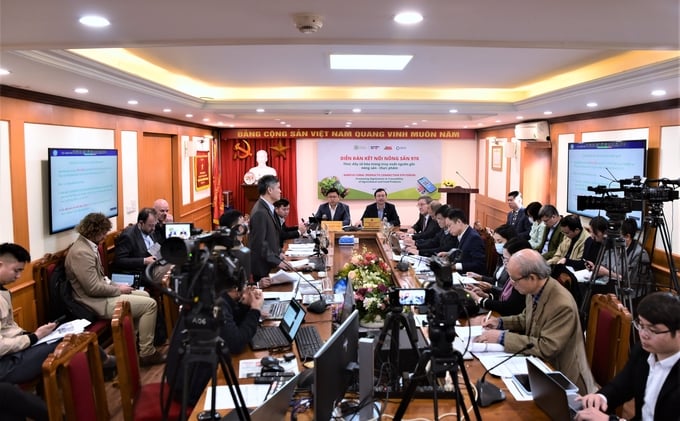
Overview of the "Promoting digitalization in agro-product and food traceability forum" on February 28.
Traceability refers to the ability to follow every element of a product's production and distribution, from cradle to grave, farm to fork, and mine to market. The procedure is governed by Vietnamese law. MARD published Circular No. 74/2011/TT-BNNPTNT on October 31, 2011, prescribing the traceability, recall, and management of dangerous agro-forestry goods; the duties of companies and persons engaged in the production and selling of agro-forestry products; and connected authorities.
MARD is working to promote digitization in order to develop a transparent, multi-value integrated agriculture and eliminate "cloudy" agriculture.
This helps to identify Vietnamese agriculture, develop confidence, and confirm the quality of Vietnamese agro products in local and international markets, as well as provide economic advantages to farmers, communes, and businesses.
These activities seek to demonstrate Vietnam's commitment to developing "transparent-responsible-sustainable" agriculture.
Quality assurance, food safety, and transparent origin traceability of food for customers, according to Mr. Nguyen Ngoc Thach, are required to shift the production mindset. "It is not only individual duty, but also the obligation of the entire community, and digitalization, science, and technology play a vital part," Mr. Thach explained.
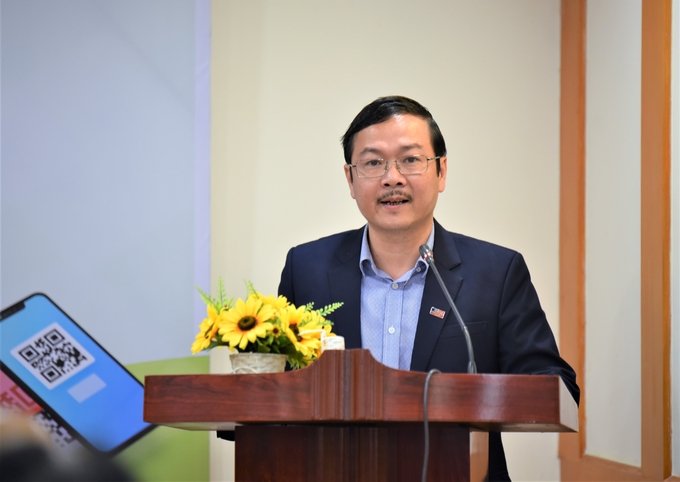
Mr. Nguyen Ngoc Thach, Editor-in-chief of Vietnam Agriculture News.
Sharing the same view with VAN leader, Mr. Howard Hall, Special Adviser at the Australian Centre for International Agricultural Research (ACIAR) affirmed the significant role of digital adoption in traceability. The application of science and technology for traceability helps to trace the origin in the most transparent way, thereby, the agricultural and food products access to consumers could be ensured with good quality and full information according to the needs of consumers.
ACIAR has promoted commercialization for small households as well as Vietnamese agriculture science and technology. Over its 30 years of operation in Vietnam, ACIAR has strived to provide farmers with accurate information to assist them in making sound decisions based on input data.
According to Mr. Hall, ACIAR also gives market intelligence to help them choose the most appropriate market to target or to orient production to fit the target market.
With the benefit of using scientific and technological breakthroughs to assist origin traceability, consumers can be guaranteed product quality while also ensuring clear transparency for items to be identified.
When brought to market, traceability is viewed as a tool to assist farmers in doing more suitable agricultural operations.

"Our project will place a strong emphasis on traceability as well as the development of traceability support technologies to assist farmers, cooperatives, cooperative organizations, and consumers," Mr. Hall explained.
At the forum, Ms. Nguyen Thi Nga, Project Coordinator of ACIAR shared about a new project that aims to pilot digital monitoring of VietGAP compliance and quality control in Vietnam’s vegetable value chain.
Moc Chau, a land suitable for growing many kinds of temperate vegetables, was chosen to execute the project. Having those characteristics, ACIAR has had many support projects in Moc Chau since 2021. As a result, every year 70,000 tons of vegetables are collected from Moc Chau and Van Ho, thus a vegetable industry worth AUD 30 million (in 2021) was well-established.
Some activities of the project include creating an electronic recording application for farmers to fill in the information regarding production on the field; the EscavoxTM device that measures temperature, and humidity and provides GPS location; on-farm label printing with information about the product, QR codes, and barcodes for retailers and consumers; VietGAP compliance tracking log for each shipment which compliance reports are stored in the cloud.
The project team has conducted several surveys, and the data shows that most consumers believe that packaging, certification, and labeling are important. The majority of respondents use QR codes to check products, but they didn't check often and instead have more faith in the brand. QR codes are considered useful for products that are consumed fresh such as tomatoes, cucumbers, and thin-skinned fruits. After scanning a QR code, consumers usually want to see information such as production area, packaging facilities, product package weight, expiry date, and certification.
Management of traceability means having a firm grasp of information from all stages of production. The Plant Protection Department has currently utilized 4.0 technology and digitalization to manage growing area codes and packing facility codes, generally “identity codes” for farming households and specifically the products.
Mr. Huynh Tan Dat, Deputy Director of the Plant Protection Department (PPD), shared with the forum on promoting digitalization in agro-product and food traceability some information about food traceability, growing area codes, and packing facility.
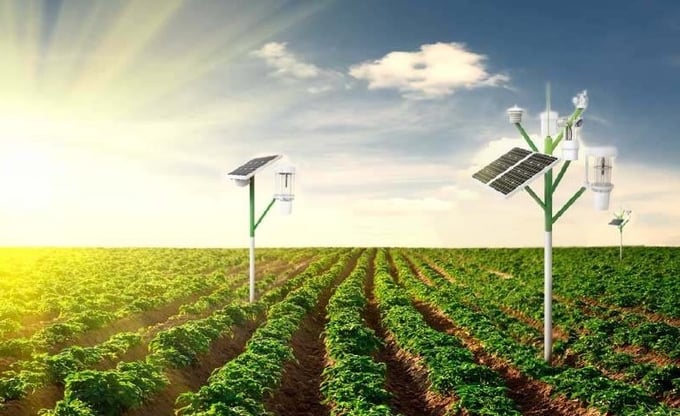
“These are contents institutionalized from all documents concerning the field of plant protection, demonstrating two basic laws: Law on Food Safety and Law on Plant Protection and Quarantine. The regulations are present throughout all stages of production from out-field production to input management, production procedures, harvesting, processing, and consumption,” said Mr. Huynh Tan Dat.
To ensure all regulations during the production process, the Plant Protection Department has laid out many sanitary and phytosanitary requirements for plant-based products.
As for the general principle of growing area codes and packing facilities for export, the Plant Protection Department deems it vital that these establishments need to comply with the requirements of the importing country. Registration of growing area codes or packing facility numbers is on a voluntary basis. Inspection is the basis for granting the code or maintaining/recovering the code, and the code must be recognized by the importing country. The issued code must always comply with the conditions of the importing country and must be supervised by the regulatory authority to maintain the code.
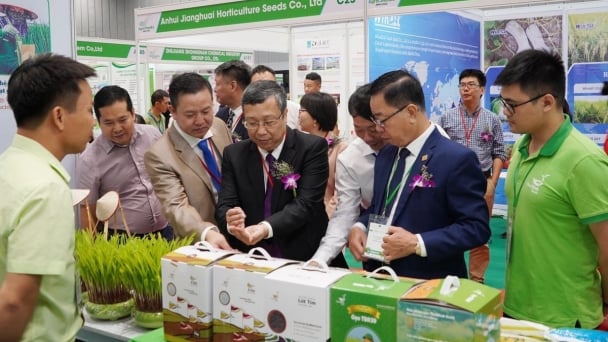
(VAN) Vietnam and China are strengthening connectivity and cooperation in the field of crop varieties and agricultural materials, paving the way for sustainable development in the agricultural sectors of both countries.

(VAN) Over the past 20 years, Hai Phong has reduced the number of bears in captivity from 500 to just over 10, thanks to the efforts of the forest protection force.

(VAN) Prime Minister Pham Minh Chinh held talks with Chinese Premier Li Qiang on June 24, in Tianjin, China.

(VAN) On the occasion of attending the World Economic Forum (WEF) in Tianjin, China, on the morning of June 25 (local time), Prime Minister Pham Minh Chinh met with Senegalese Prime Minister Ousmane Sonko.

(VAN) The Net Zero door is opening, but no one can walk through it if they stay outside the mandatory emissions inventory roadmap starting in 2025.
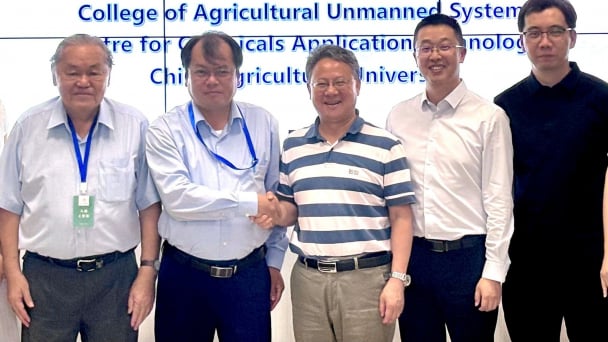
(VAN) The visit to China Agricultural University opens up new prospects for high-tech agricultural cooperation, fostering connections between research institutes and enterprises of Vietnam - China.

(VAN) Con Dao, the emerald gem in the vast ocean, is undergoing a powerful revival, transforming into one of Vietnam’s leading ‘eco-spiritual paradises.’ In this journey.